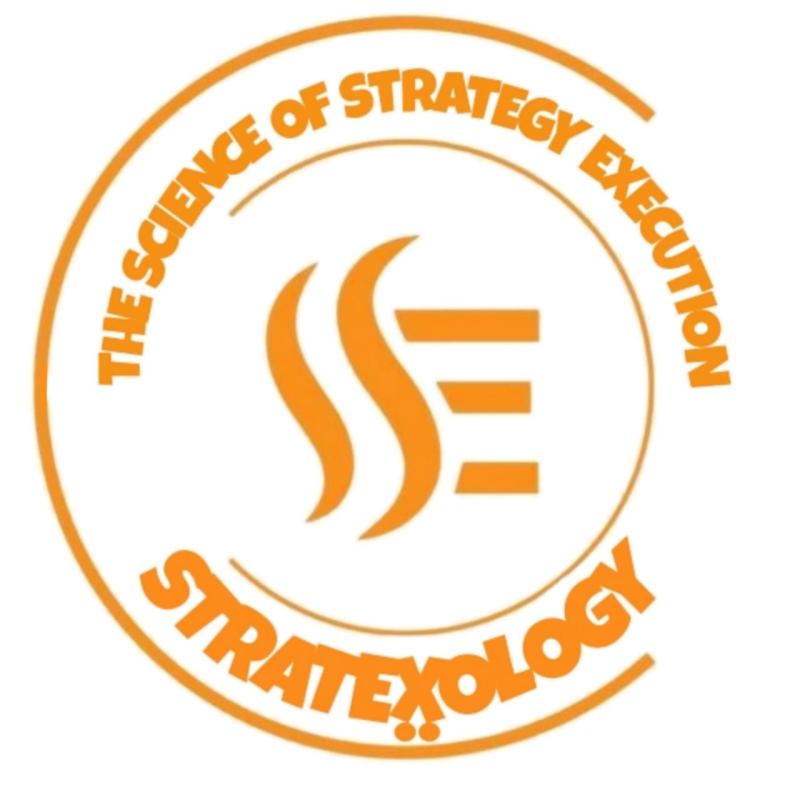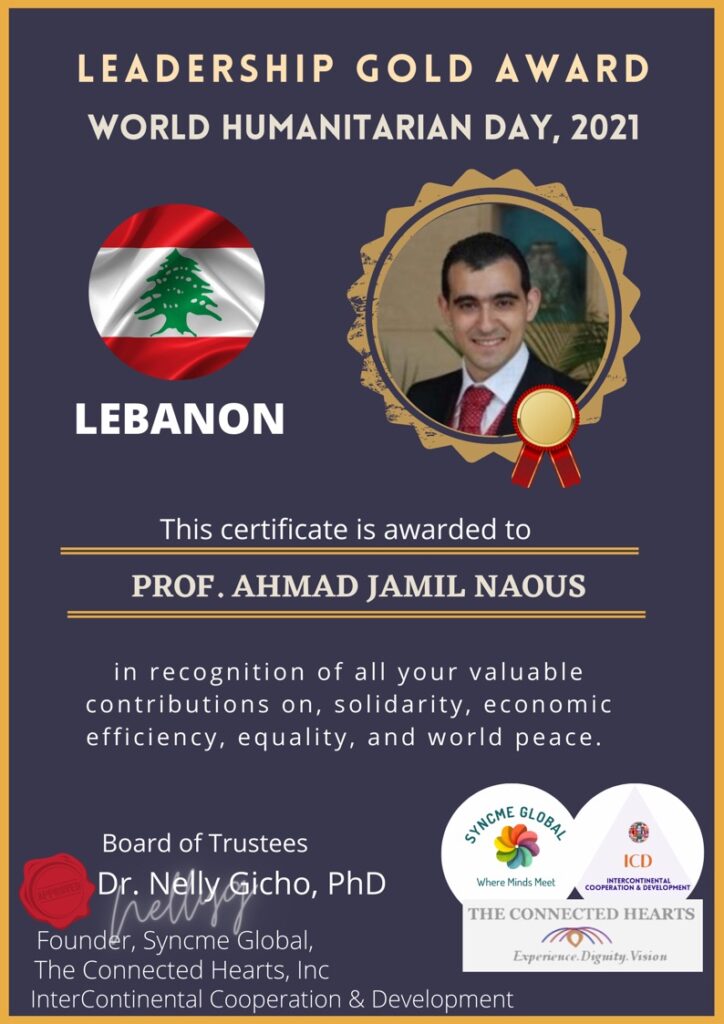Professor Ahmad Naos is an international speaker, Balanced Scorecard consultant and management educator, who helps managers and organizations learn from their past, understand the present and create their future. As an (Execution premium Community) practitioner, he has a unique experience in measuring performance. He spent 15 years working in corporations in Middle East. He extracted from his experience highly innovative ideas about “The Science of Strategy Execution”, Balanced Scorecard, and The Execution Premium. He has spent a decade honing his thinking as a consultant and Chief Human Resources Officer. He communicates ideas to audiences around the world in the form of creative presentations, in-depth seminars, and management development programs. In his book “The Science of Strategy Execution” it offers an extraordinary integration of management and practice from a strategy management perspective. Its objective is to help readers make meaning from the Balanced Scorecard and Execution premium. The result is an inspirational practice of the Balanced Scorecard and the Execution Premium that will resonate with every reader’s experience.
The science of strategy execution or Stratexology is a new economic science that was discovered in 2017 after 15 years of research. The core of science is execution. 90% of companies fail to execute strategy, only 10% do it.
After 15 years of research Professor Ahmad Naous was able to develop two theories of Harvard Business School Professors Dr. Robert Kaplan and David Norton to a new science, Stratexology. It was not an easy task.
The purpose of Stratexology is not to achieve profits only but to create shared value and positive Impact in societies and communities.
The Balanced Scorecard is a management tool to measure performance of companies to make sure that it is achieving their objectives. It was developed in 1990 by Dr. Robert Kaplan and his cohort Dr. David Norton of Harvard Business School.
The BSC was elected as best tool to measure performance in the last 75 years.
FMM: Stratexology: Creating Shared Value and Positive Impact is no longer a management perspective. It is an economic science. Explain
Stratexology is a new science from two words… Strategy and Execution(X). The core of the science is execution. Without execution, strategy is meaningless. It is a road without direction. Stratexology is the science of strategy execution. It is not anymore, a management perspective. It is now an economic science to create shared value and positive impact in communities and societies.
Robert Kaplan and David Norton put a management tool, but Professor Ahmad J. Naous and his knowledge in economics turned Balanced Scorecard to an economic tool and put it on direction of creating shared value and positive impact in communities and societies.
FMM: It’s been more than 25 years since Harvard Business School professor Dr. Robert S. Kaplan and cohort David P. Norton put forth the concept and research of the Balanced Scorecard. What has changed since then?
After 30 years there is a new economic science that companies can use worldwide to create shared value and positive impact. It is kind of new concept to help not well known communities and societies to rise and speak widely about their problems and concerns. Stratexology is concerned also with humanitarian issues to help less fortunate people to get their chance in life.
The objective is to create shared value and positive Impact in poor communities and societies.

FMM: What is positive impact?
The world is facing seemingly impossible challenges that impact businesses, societies, economies, and lives. That’s why we measure company’s success not only in revenues and profit and shareholder value, but in Impact-because you can’t have one without the other, at least not sustainably. This is also why we coined the term ”Positive Impact” to mean “the intentional creation of enduring social and economic value”, and we aspire to realize it in everything we do.
FMM: Tell us about the Positive Impact Framework.
The Positive Impact Framework is a new way to build, execute and measure your organization’s strategy. Designed with the collaboration of multi-stakeholder alliances in mind including corporations, communities, investors and more, the positive Impact will help organizations formulate strategies and implement solutions that generate benefits for communities, corporations, and the environment.
LIFE will facilitate growth of the microfinance sector in Lebanon.
FMM: You were honored with the Humanitarian Global Goodwill Ambassador award by Richard Dipilla of GGA. What does this mean to you?
The honorment was for the great humanitarian work I did in Lebanon and helping Syrian refugees. You can say it is part of Stratexology agenda to create shared value and positive impact.
It is the practical part of science of strategy execution. Mr.Richard Dipilla was the first supporter and after big engagement. I was appointed Director of Lebanon and then Chairman of Lebanon.
It means life to me. You have to help not to sit and watch things but engage to solve world challenges.

FMM: What are trends that you are seeing today as a consultant?
As a BSC Consultant or SSE Consultant now, I am helping people through spreading knowledge. Ignorance is a disease and we must fight it through knowledge. When I discovered Stratexology the main task to promote knowledge. When you tackle the ignorance, the only result you get is knowledge.
On September 30, 2016, Palladium, and the United States Agency for International Development (USAID) signed a 5 year, $20.3 million contract to support the Livelihoods and Inclusive Finance Expansion (LIFE) Project in Lebanon.
The LIFE project will link vulnerable entrepreneurs at the bottom of the economic pyramid with business training and financial services, improving livelihoods, creating jobs, and reducing poverty while facilitating growth and consolidation of the microfinance sector in Lebanon. LIFE will focus on all regions and rural areas of Lebanon with a special emphasis on “host communities” where large numbers of Syrian refugees are located.
The LIFE project builds on USAID’s previous investments towards growth of the Lebanese microfinance industry, most recently with the Lebanese Investment in Microfinance (LIM) project. Under LIFE, Palladium will provide world-class technical assistance, training, and strategic guidance to microfinance institutions in Lebanon and Lebanon’s Microfinance Association (LMA) so these actors can continue to grow their services to best meet the needs of Lebanon’s most vulnerable entrepreneurs. LIFE will concurrently build the capacity of Lebanon’s smallest and most vulnerable entrepreneurs so that they can grow in business acumen and financial capability, building a new generation of entrepreneurs in Lebanon. LIFE will support local actors as they institute policy changes that will transform the microfinance ecosystem in Lebanon and enable greater inclusivity.
Specifically, LIFE aims to increase capitalization of microfinance institutions (MFIs) who are members of the LMA by at least 25%, expand the coverage of MFIs into formerly underbanked areas, increase the number and value of loans provided by MFIs, provide training to 5,000 microentrepreneurs, and increase the incomes of women, youth and disadvantaged individuals by 20% over project life. LIFE will also institute an innovative grant fund that will remunerate Lebanese-based actors upon successful performance in identifying new entrepreneurs, providing them with business training, and ultimately preparing them to become viable microfinance clients.
Palladium has mobilized a best in class team of local and international partners to support LIFE. LIFE will maintain an office in Beirut, with field agents operating in Lebanon’s North, South, and Bekaa Valley.
Said Santiago Sedaca, Palladium Vice President for Economic Growth, “The LIFE project offers a unique opportunity to address the supply, demand, and enabling environment aspects of Lebanon’s microfinance industry simultaneously. We couldn’t be more pleased to be part of this exciting effort to help more Lebanese entrepreneurs increase their incomes and ability to access formal finance, and work with Lebanon’s capable institutions to usher in a new era in Lebanon’s financial sector evolution.”
This is where ground-breaking impact starts!!!
FMM: Tell us about your upcoming speaking engagements.
As for speaking engagements, It will start in 2022. I am trying to speak at Harvard Business School, London School of Economics, and Noble in Sweden. It may take time, but what is meant to be it will be with the blessing of Allah.



